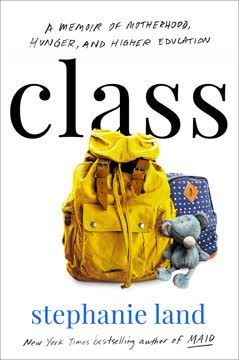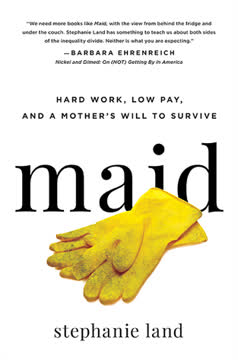Key Takeaways
1. The Relentless Reality of Single Motherhood in Poverty
My life teetered between what I referred to as “a crushing sense of hopelessness” and “a whole new level of exhaustion” without any sort of break between the two.
Constant struggle. Stephanie's life as a single mother is a ceaseless battle against financial insecurity, housing instability, and the emotional toll of providing for her daughter, Emilia. Every decision, from food to childcare, is a high-stakes calculation, often leading to overwhelming anxiety and a feeling of suffocation. The narrative vividly portrays the daily grind:
- Scrambling for childcare for Emilia.
- Working low-wage cleaning jobs.
- Living with varying degrees of food and housing insecurity.
No breaks. The protagonist yearns for a break, a moment of respite from the constant responsibility, but it rarely comes. Even when her ex-partner, Jamie, promises to take Emilia for the summer, he inevitably backs out, leaving Stephanie to pick up the pieces and manage her daughter's heartbreak. This instability forces her to be hyper-responsible, constantly anticipating and mitigating potential disasters.
Invisible burden. The weight of these responsibilities is often invisible to others, leading to a profound sense of isolation. The constant fight to make rent, put food on the table, and secure childcare is a mental and physical drain, leaving little room for personal dreams or emotional recovery.
2. Education: A Costly Path to Escape Poverty
The fact that the loans sank me further into poverty wasn’t lost on me, but they were a means to an end.
Irony of ambition. Stephanie pursues a college degree, aspiring to an MFA in creative writing, viewing it as her "ticket out of poverty." However, the reality is a cruel game of irony: student loans plunge her deeper into debt, and the system often penalizes her for seeking education rather than low-wage work. She calculates the dollar amount wasted for every missed class, highlighting the immense financial pressure.
Systemic barriers. Her journey is fraught with bureaucratic hurdles, such as being classified as a non-resident for tuition purposes, which triples the cost and limits her course load. This forces her to work towards residency while simultaneously trying to study and care for Emilia, making the path to graduation a prolonged and exhausting endeavor.
- Non-resident tuition was almost triple.
- Limited to six credits per semester for residency.
- Required to work twenty hours a week for food benefits, despite full-time student status.
Questioning worth. The pursuit of a "frivolous" English degree is constantly questioned, both by external voices and her own internal doubts. She grapples with the perception that her education is an unnecessary luxury for a single mother on food stamps, despite her deep-seated dream of becoming a writer.
3. The Enduring Shadow of Abuse
Jamie became abusive soon after I told him that I was pregnant seven years ago, and his cruelty had escalated when I said I wasn’t getting an abortion.
Cycle of manipulation. Jamie, Emilia's father, is a constant source of emotional abuse and manipulation. His cruelty escalates after Stephanie's pregnancy, and he uses their daughter as a pawn to control and hurt Stephanie, often breaking promises to Emilia and then blaming Stephanie for the child's disappointment. This pattern leaves Emilia heartbroken and Stephanie seething with helplessness.
Legal battles and emotional toll. Stephanie fights tirelessly for Jamie's abuse to be acknowledged by the courts, securing a parenting agreement that limits his time with Emilia due to his history of domestic violence. However, even with legal protections, Jamie's influence persists, as he uses child support payments and visitation as tools for control and to inflict emotional pain.
- Jamie breaks promises about summer visits and a new bike.
- He manipulates Emilia by telling her Stephanie's court actions prevent him from seeing her.
- His texts to Stephanie are filled with insults and threats.
Intergenerational trauma. The protagonist reflects on her own mother's abandonment and her fear of repeating similar patterns, even as she struggles with the desire to escape her overwhelming circumstances. Jamie's actions inflict a new layer of trauma on Emilia, forcing Stephanie to consider therapy for her daughter to cope with the emotional abuse.
4. Societal Expectations vs. Lived Experience
Resilience as a virtue is assigned, especially to marginalized groups, when systemic structures have created countless invisible barriers to living what the privileged consider a normal life.
The "resilience" myth. Stephanie critiques society's worship of "resilience," arguing it's a virtue assigned to the poor to justify their suffering and avoid addressing systemic issues. She feels pressured to appear strong and high-functioning, even when battling debilitating panic attacks and profound hopelessness, because showing vulnerability would make her suffering "too visible to ignore."
Judgment and prejudice. She constantly navigates the judgment of others, from grocery store clerks to friends, who scrutinize her choices and financial assistance. The fear of being labeled "undeserving poor" or a "welfare queen" forces her to hide her struggles, even when seeking essential help.
- Fear of being seen as "bad kid" or "poor kid" at school.
- Hesitation to use EBT card in public.
- Kristi's judgmental reaction to her pregnancy.
Loss of free will. The denial of food stamps, based on the rationale that her child is school-aged and she should work full-time, feels like a punishment and a denial of her free will. It reinforces the idea that poor people are not allowed to make decisions for themselves, especially those that deviate from a prescribed path of low-wage labor.
5. Profound Loneliness and the Search for Connection
My loneliness was so real, so always-present, that it had weight, like something I dragged around behind me.
Emotional isolation. Despite being surrounded by people, Stephanie experiences a deep and pervasive loneliness. Her family is largely absent or unsupportive, and while she cultivates friendships, she often feels unable to share the full extent of her struggles, fearing judgment or burdening others. This isolation is particularly acute during moments of crisis or personal triumph.
Fleeting connections. Her relationships, both romantic and platonic, often remain superficial or temporary. She finds camaraderie with fellow climbers and some classmates, but these connections rarely offer the deep, consistent emotional support she craves.
- Her father never calls back after she asks for help.
- Her mother and brother are estranged.
- Romantic partners like Theodore and Daniel prove unreliable or unwilling to commit.
Self-reliance as a defense. The repeated disappointments lead her to a defensive stance, vowing not to trust anyone but herself. This self-imposed emotional wall, while protecting her from further heartache, also perpetuates her isolation, making it difficult to accept or even seek genuine support.
6. Writing as a Lifeline and Dream
Not even three steps on campus, and I knew I had to fight for the original reason I applied: to get my Master of Fine Arts in creative writing.
A lifelong aspiration. Since childhood, Stephanie has dreamed of becoming a writer, seeing it as her "one opportunity to be a writer—a real writer." This dream becomes a powerful driving force, sustaining her through the relentless challenges of poverty, single motherhood, and academic rigor. It's the "why" that fuels her daily grind.
Academic pursuit. She immerses herself in her English degree, taking numerous writing workshops and independent studies, seeking mentorship from professors like Debra Magpie Earling and David Gates. These classes, though often demanding, provide intellectual stimulation and a sense of belonging, even if the path to a paid writing career remains unclear.
- Debra Magpie Earling's class fundamentally changes her.
- David Gates calls her essay "solid gold."
- She learns to write fast and efficiently.
Validation and setbacks. Moments of validation, like a professor praising her work or a piece being published, are incredibly meaningful. However, she also faces setbacks, such as the rejection from the MFA program, which she suspects is due to personal biases rather than her writing ability. Despite these, her commitment to writing remains unwavering.
7. Unexpected Pregnancy: An Act of Autonomy
There, in that shower, in water so hot it turned my skin red, I wrapped my arms around myself and whispered, “But what if you did this on your own?”
A profound choice. A surprise pregnancy, occurring amidst her senior year and financial precarity, forces Stephanie to confront her deepest desires. Despite the immense challenges and the unknown paternity, she experiences a profound shift, realizing this decision offers a unique opportunity for autonomy—a chance to raise a child entirely on her own terms, free from the manipulation of an abusive co-parent.
Reclaiming control. The uncertainty of the biological father, initially a source of shame, transforms into a liberating realization. This baby would be "just ours," free from custody battles, court interventions, or external opinions on parenting choices. It's a powerful act of self-determination, embracing a future she once thought was lost after a previous abortion.
- No fighting over custody or courts getting involved.
- Freedom to choose birth place, name, and parenting style.
- A decision made solely based on her own desires.
Finding peace. This decision brings an unexpected sense of peace and certainty, a "knowing" that everything will be okay. It's a testament to her inner strength and a defiant embrace of a future that, while challenging, is entirely her own creation.
8. Navigating Bureaucratic Mazes
All government assistance programs operated on the assumption that every person who walked into their office brought with them the possibility of scamming them in some way.
Designed for difficulty. Stephanie's experience with government assistance programs (SNAP, WIC, child support) reveals a system designed to be intentionally complex and dehumanizing. The process is a "complicated maze," requiring endless paperwork, detailed interrogations about personal assets, and long waits, all based on an underlying suspicion of fraud.
Punitive measures. The system often punishes rather than supports. The denial of food stamps due to Emilia's age, despite Stephanie's full-time student status and work, exemplifies how policies create impossible choices. The child support modification process, intended to help, becomes another battleground, draining her resources and emotional energy.
- SNAP recertification requires proving work hours and assets.
- TANF requires opening a child support case, even if it means revealing location to an abuser.
- Child support modification appeal requires gathering extensive evidence and facing a condescending judge.
Dehumanizing interactions. Interactions with caseworkers and judges are often devoid of empathy, focusing on compliance and perceived "failings" rather than understanding individual circumstances. Stephanie feels like a criminal, constantly having to defend her choices and prove her worthiness for basic necessities.
9. The Value of Small Victories and Community
Generosity usually felt that way to me, like a scratch that satisfied an itch I didn’t know the source of.
Unexpected kindness. Amidst the relentless struggle, small acts of kindness and unexpected victories provide crucial relief and moments of joy. These aren't grand gestures but practical forms of support that make a tangible difference in her daily life.
- YMCA scholarship for Emilia's summer camp.
- A client donating a bike.
- A stranger selling her a reliable truck at a fair price.
Community connections. While deep, consistent support is rare, Stephanie finds pockets of community that offer temporary solace and practical help. Fellow climbers, understanding professors, and friends who offer childcare or share resources become vital lifelines. These connections, though sometimes fleeting, remind her she's not entirely alone.
- Friends offering to take Emilia camping.
- Professors allowing Emilia in class.
- Winning a $250 gift certificate for groceries.
Moments of magic. Despite the hardships, Stephanie actively seeks out and cherishes moments of magic and normalcy for Emilia, like attending "The Nutcracker" or decorating sugar cookies at a Christmas event. These experiences, often made possible by unexpected help, create precious memories and reinforce her determination to provide a good life for her daughter.
10. Challenging the "Deserving Poor" Narrative
I sound angry, don’t I? I hope I do. I’ve spent so much of my life pretending not to be angry, and I’m not doing that anymore.
Rejecting the narrative. Stephanie explicitly challenges the societal narrative of the "deserving poor," which dictates that individuals must prove their worthiness for assistance through hard work and compliance. She expresses a righteous anger at the systems that perpetuate poverty and the judgment she faces for her choices, refusing to pretend gratitude for inadequate support.
Unmasking systemic flaws. Her experiences expose the inherent flaws in a system that:
- Devalues education for the poor.
- Punishes rather than supports single mothers.
- Creates barriers to accessing essential resources.
- Prioritizes bureaucratic rules over human needs.
The right to choose. Stephanie asserts her right to make decisions for herself, whether it's pursuing higher education or choosing to have another child, regardless of her economic status. She argues that free will and the ability to aspire to a better life should not be privileges reserved for the wealthy.
Finding her voice. The act of writing itself becomes a powerful tool for challenging these narratives, allowing her to articulate her anger, expose injustices, and reclaim her agency. Her journey is a testament to the strength found in refusing to be silenced and in fighting for a life of dignity and self-determination.
Last updated:
Review Summary
Class receives mixed reviews, with many readers criticizing Land's decision-making and perceived lack of self-awareness. Some find the narrative self-indulgent and lacking insight, while others appreciate Land's honesty in sharing her struggles. Critics argue that the book fails to fully address class issues and focuses too much on personal relationships. Supporters praise Land's raw depiction of poverty and single motherhood, emphasizing the importance of her perspective. Overall, the book sparks debate about privilege, personal responsibility, and societal expectations for those living in poverty.
Similar Books



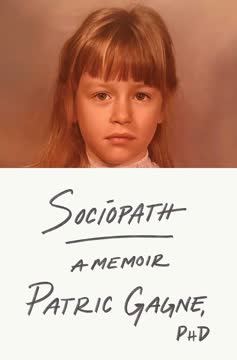


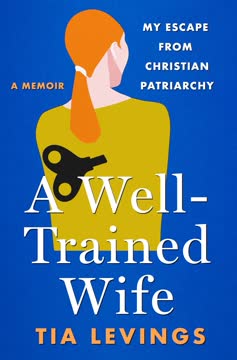

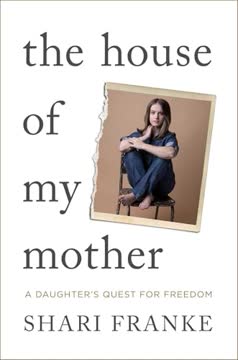
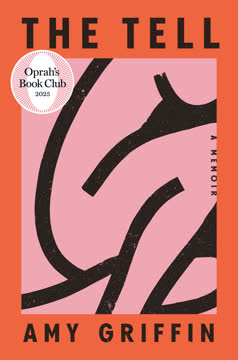
Download PDF
Download EPUB
.epub digital book format is ideal for reading ebooks on phones, tablets, and e-readers.
